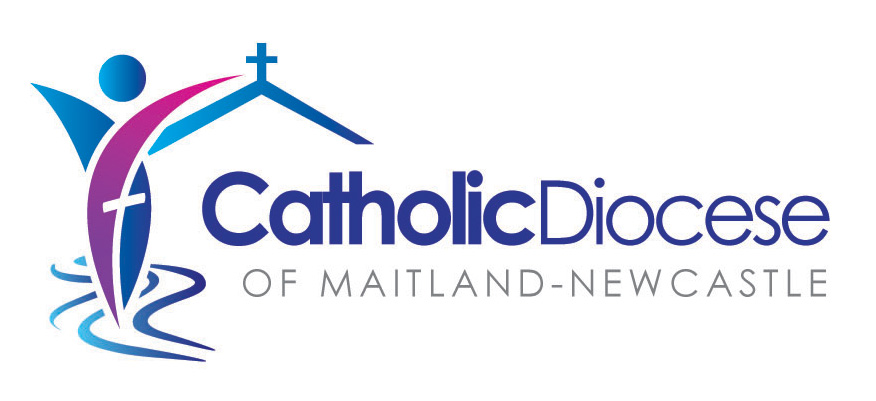Parish List
- Home
- About
- Church & Mission
- Support Us
- Catholic Life
- National Plenary Council & Diocesan Synod
- Youth
- Children's Ministries
- Mission and Outreach
- Diocesan Protection and Safety Council
- Change Loss and Grief
- Ecumenism
- Social Justice
- Other Groups
- Health and Aged Care
- Perpetual Day of Remembrance
- LGBTIQ Forum
- Visiting Clergy - Citizens/Residents of Australia
- Visiting Clergy - International Visiting Australia
- Agencies
- News & Events
- People
- Places
- Mass Times App
Press Release
An open letter from Bishop Bill Wright regarding the 50th case study of Royal Commission into Institutional Responses to Child Sexual Abuse

To the Catholic People of the Maitland–Newcastle diocese.
My dear people,
As I'm sure you know, the 50th case study of Royal Commission into Institutional Responses to Child Sexual Abuse began today in Sydney. I was present throughout the day's proceedings.
This case study, which has also come to be known as 'the Catholic wrap-up', is concerned with the present policies and procedures of the Catholic Church in Australia in the field of child protection and its current ways of responding to reports of abuse. These will be considered in the light of those things that have emerged in earlier case studies or other submissions to the Royal Commission as factors that may have contributed to the occurrence of child sexual abuse in Catholic institutions or to the way the Church in Australia responded to that abuse. Case Study #50 will also look at how various church authorities have responded so far to the findings of earlier case studies. In the language of the Royal Commission, the issue is how 'cultural factors' in Catholicism have affected our past responses to child sexual abuse and whether those same or similar elements in Catholic culture continue to affect the Church's response now and into the future. It is an important discussion about the extent of change that is necessary across the Church.
After an introduction to what is expected to be considered over the next three weeks, Counsel Assisting the Commission then presented data on the extent of child sexual assault offending in the Catholic Church in Australia between 1950 and 2010 in terms of the numbers of clergy, religious and lay people against whom allegations of abuse had been made and, for the priests and religious, what proportion of all priests and religious had been reported for child sexual abuse.
Francis Sullivan, speaking for the Truth, Justice and Healing Council, which has been authorised by all the bishops and almost all religious congregations to represent them before the Commission, later spoke of the horror, dismay and deep shame that must be felt by all Catholics at the extent of the evil and corruption in our church that is revealed in these data. 'The figures are shocking, they are tragic and they are indefensible', Mr Sullivan said. Of course the reality is that each of the 4,444 allegations represents not just a statistic but a child whose life has been blighted by utterly undeserved abuse. We have now heard many of them tell how their lives were devastated, how their struggles continue to this day and how the abuse has also affected their families past and present. Statistics are statistics, but these are people, they were children. The church does have to answer for what was done to them.
In the last 60 years there have been 1,880 'alleged perpetrators': 597 religious brothers, 572 priests, 543 lay people and 96 religious sisters and 72 others whose status is uncertain. According to the information supplied by church authorities on total numbers, these alleged perpetrators represent 7% of the priests who were around during this period. The figures for religious are broken up by congregations, and there are considerable differences between them, as there are for the various dioceses. The detailed figures can be seen in the Royal Commission's paper on its website.
For the Diocese of Maitland–Newcastle, the Commission's data indicates that 7.9% of our priests over the last 60 years have had claims of abuse made against them, which is also the national average for diocesan priests. In both cases, it is a figure that is shocking to those of us who, for most of our lives, had never heard of a priest abusing children and found such a thing almost inconceivable. Nonetheless, I have already had questions from people who are surprised that our figures are not among the worst, given the long-standing sense that this diocese was one of the 'epicentres' of abuse in this country. The explanation of this seeming contradiction is that the figures released today are about the number of alleged perpetrators of abuse. The sad truth of our community is that we have an exceptional number of people who were victims of abuse by a number of priests who each abused many, many children. That they were able to do so over long periods is our particular shame and our particular responsibility.
Before coming into this diocese, I knew something of the abuse suffered by three personal friends, one of them having been abused by a priest, the other two by family members. They did not, however, tell me very much. In these last five or so years, however, I have met survivors whose purpose was precisely to tell me, make me understand, what had happened in their lives. From them, and from reading many written testimonies, I have learnt just how sickening and depraved the activities of child abusers are. If this Royal Commission can help to put a stop to this scourge in church and other institutions across this country, it will well and truly justify all the time and expense that has gone into it.
Living through this time is pretty shattering for those of us who have loved the church and had our lives enriched and blessed through it. But we have to come to terms with the reality of a vast evil that has also been part of its story. There is no denying it. Now, for the sake of all that is good, we have to change. This important Case Study #50 will be very significant in understanding the 'cultural change' that we must, must, embrace.
For those who have been affected by child sexual abuse within the Church, whether you have been abused yourself or a loved one has been abused; the Healing and Support Team of Zimmerman Services are there to support you on your individual journey towards healing. Please contact Maureen or Lisa on 4979 1390.
As I am writing here to my fellow Catholics, I conclude by asking your prayers for the success of the present Case Study as an agent of change for the nation and the church. Now and always, too, let us pray for all those who have been hurt and harmed, one way or another, by crimes of abusers or the failures of our wider church or its leaders.




